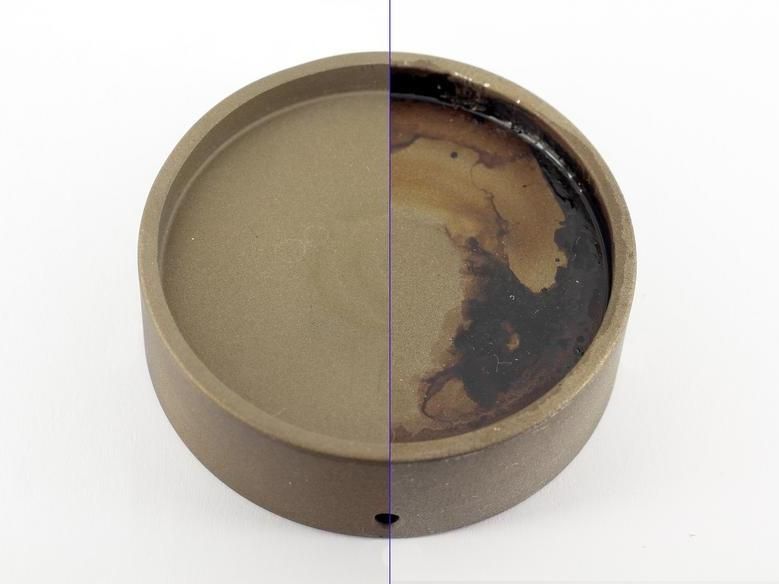Coking of fluid fuels
New procedure shall analyze and avoid reasons
In heating appliances, diesel engines and other technical systems driven by fluid fuels and lubricants, combustion can lead to growing undesirable deposits (coking), which may affect the functionality of the system. Deposits arise during the evaporation of fuels on hot surfaces. The detailed processes are unclear. Within a common research project, the chair for Analytical Chemistry of the University Rostock and the Oel-Waerme-Institut (OWI) want to get to the bottom of the reasons for deposit formation in modern combustion systems.

Within the combustion of fluid fuels on hot surfaces, undesirable deposits may occur. Comparing example of a test apparatus with and without deposits.
OWI Oel-Waerme-Institut GmbH
Aim of the research project is to rebuild and analyze the process of deposit formation in form of a reproducible and under laboratory conditions representable procedure. Suitable seems to be the existing procedure of the thermogravimetric analysis (TGA), which still needs to be enhanced. Afterwards, the TGA built deposits are transferred into the gas phase by further continuous increase of the surface temperature (pyrolysis) or oxidation and investigated via mass spectroscopic analysis (TGA/MS). With help of this procedure, the simulation of processes in the building and regeneration of deposits, which can be observed within technical combustion, under defined thermal boundary conditions is possible for the first time. That allows a transmission of knowledge into the technical development of mixture formation systems for heating systems or fuels and additives. In current research, numerous influencing variables of the deposit formation such as the fuel composition, especially the material and roughness of the wetted surface, are discussed and easily displayed by a suitable selection of the TGA’s sample container. In a second part of the project, the knowledge shall be used to either avoid the deposit formation or to reduce formed deposits by a suitable process control. For this, two test benches are developed by which the tendency for coking of technical mixture formation systems (porous medium and spray formation) can be examined.
See the theme worlds for related content
Topic World Mass Spectrometry
Mass spectrometry enables us to detect and identify molecules and reveal their structure. Whether in chemistry, biochemistry or forensics - mass spectrometry opens up unexpected insights into the composition of our world. Immerse yourself in the fascinating world of mass spectrometry!

Topic World Mass Spectrometry
Mass spectrometry enables us to detect and identify molecules and reveal their structure. Whether in chemistry, biochemistry or forensics - mass spectrometry opens up unexpected insights into the composition of our world. Immerse yourself in the fascinating world of mass spectrometry!





























































